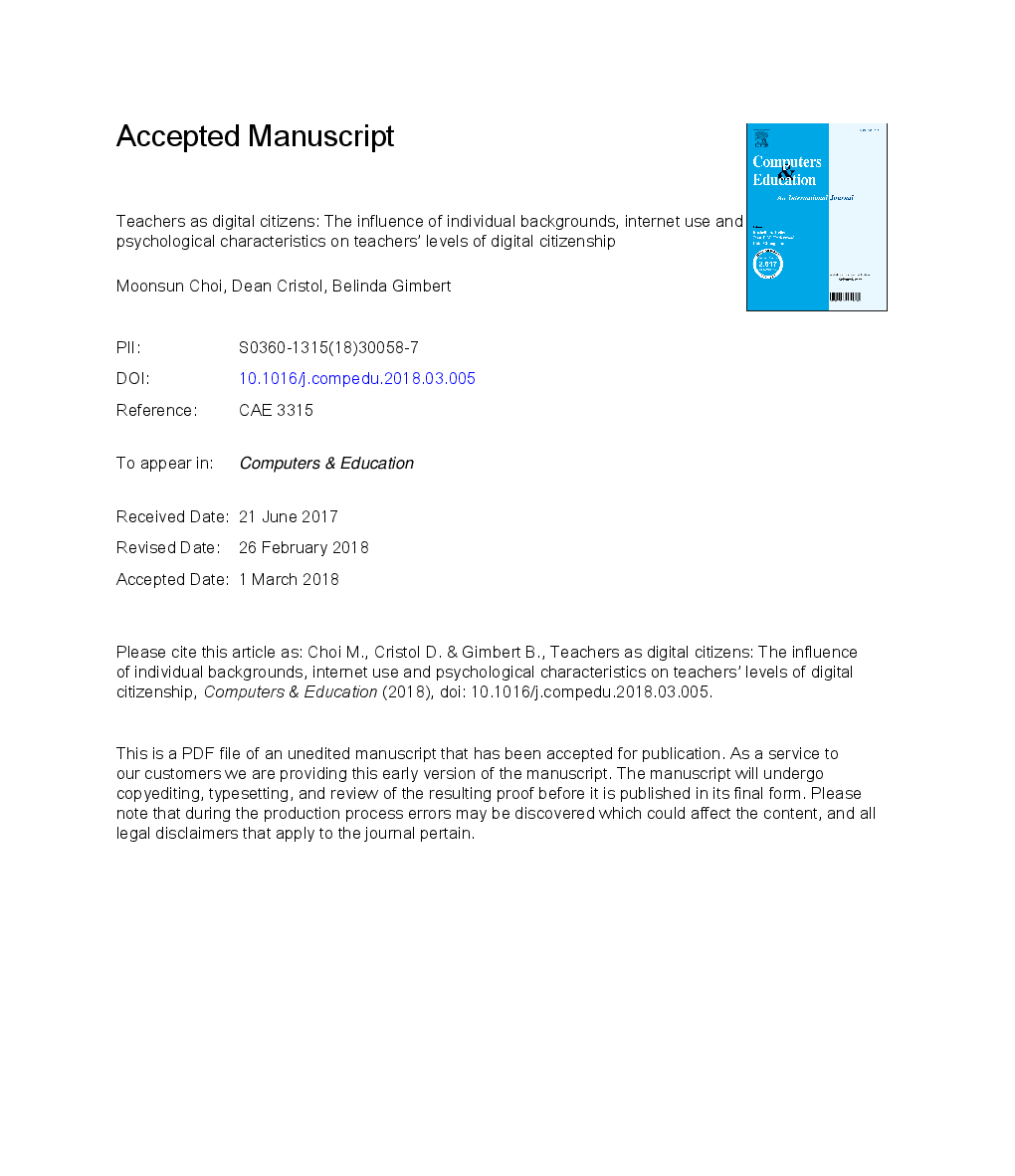ترجمه فارسی عنوان مقاله
معلمان به عنوان شهروندان دیجیتال: تأثیر زمینه های فردی، استفاده از اینترنت و ویژگی های روحی در سطح معلمان سطح شهروندی دیجیتال
عنوان انگلیسی
Teachers as digital citizens: The influence of individual backgrounds, internet use and psychological characteristics on teachers levels of digital citizenship
| کد مقاله | سال انتشار | تعداد صفحات مقاله انگلیسی |
|---|---|---|
| 161170 | 2018 | 50 صفحه PDF |
منبع

Publisher : Elsevier - Science Direct (الزویر - ساینس دایرکت)
Journal : Computers & Education, Volume 121, June 2018, Pages 143-161
ترجمه کلمات کلیدی
شهروندی دیجیتال، خودکارآمدی اینترنت، اضطراب اینترنتی، آموزش شهروندی، تدریس در اینترنت،
کلمات کلیدی انگلیسی
Digital citizenship; Internet self-efficacy; Internet anxiety; Citizenship education; Internet-infused teaching;

